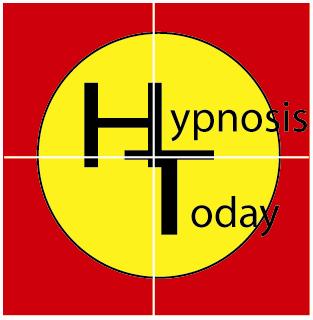|
|
Hypnosis & Hypnotherapy Hypnotherapy, Hypnosis, NLP and Time Line Therapy for your complete peace of mind. |
|
  
   |
Understanding
Anxiety and Anxiety or Panic Attacks Anxiety is a normal, healthy feeling that is experienced by everyone. It is the body's way of reacting to stimulus that pushes us to either "fight" or "flight" over a situation. However, when anxiety attacks are chronic, severe, and irrational, and begin to affect the health of a person (physically, psychologically and emotionally), it already becomes a problem that must be addressed immediately. There is a thick line between healthy and unhealthy anxiety attacks. Unfortunately, the demarcation line is almost ignored that normal anxiety crosses into the territory of anxiety disorders. Types
of Anxiety Disorder There are six different types of anxiety disorder; each has its own characteristics: generalized anxiety disorder, panic disorder, phobia, post-traumatic stress disorder, social anxiety disorder, and obsessive-compulsive disorder. Generalized anxiety disorder (GAD) is a chronic worry or fear over almost everything without even knowing why. They feel anxious from day to day activities and are troubled that bad things will happen. People with GAD show symptoms such as stomach upset, fatigue, restlessness, and insomnia. Panic disorder is repeated, unexpected panic attacks, and fears that panic episodes will likely to happen. People with panic disorder are likely to have agoraphobia, or fear of being in places where help or escape will be difficult in case of another panic attack. People with agoraphobia are also afraid of being trapped in confined places such as an airplane or crowded areas such as a shopping mall. Phobia is excessive, irrational, and exaggerated fear over simple things that generally present little or no danger. Common phobias are heights, snakes, spiders, dark, and flying. People with phobias tend to avoid the things they are afraid of in order to escape anxiety attacks. However, avoidance only strengthens the phobia. Post-traumatic stress disorder is an anxiety disorder that happens after a life-threatening or a traumatic event. People with PTSD show symptoms such as hyper-vigilance, avoiding situations or places that remind them about the event, nightmares and flashbacks about the things that happened, startling easily, and isolation. Social anxiety disorder or social phobia is fear of being seen negatively by others or fear of getting humiliated in public by other people. Social anxiety is often mistaken as an ordinary extreme shyness. People with this kind of disorder usually isolate themselves from others or event and places where crowd usually gathers. Stage fright is the most common type of social anxiety. Obsessive-compulsive disorder or OCD is a condition where a person has unwanted behavior or thoughts which appear to be impossible to control. People with OCD can have certain obsession such as worries that they might hurt someone or that they have forgotten to turn the lights off. They can also have uncontrollable compulsion. The most common is washing of hands repeatedly. Do
you experience anxiety attacks? • Are you always worried, tense, and on the edge? • Do you feel like you are in danger whenever you are in confined places? • Are you afraid of mingling with strangers, meeting new friends or even meeting relatives? • Do you feel that something bad or catastrophic will happen if certain things are not done according to plan? • Do you experience worry, fear and anxiousness that affect your relationship, work, healthy, and other responsibilities? • Do you feel irrational fear but couldn't shake it? • Does your anxiety force you to avoid everyday situations and activities? What
is a panic attack? A panic attack is a sudden attack of exaggerated anxiety and fear. Often, attacks happen without warning and without any apparent reason. Some people may experience just one episode of panic attack, while others can have recurring episodes. Recurring episodes usually happen after a person is exposed to various events or situations that may "trigger" panic. While it is generally harmless, panic attacks can severely disable a person physically, emotionally and psychologically. In extreme cases, panic attacks can lead to panic disorder.
Professional Hypnosis and NLP services by: Master Hypnotherapy Practitioners; Master NLP Practitoners and Master Time Line Therapy Practitioners. Hypnotherapists are Registered with the ABNLP, TLTA and ABH
|
